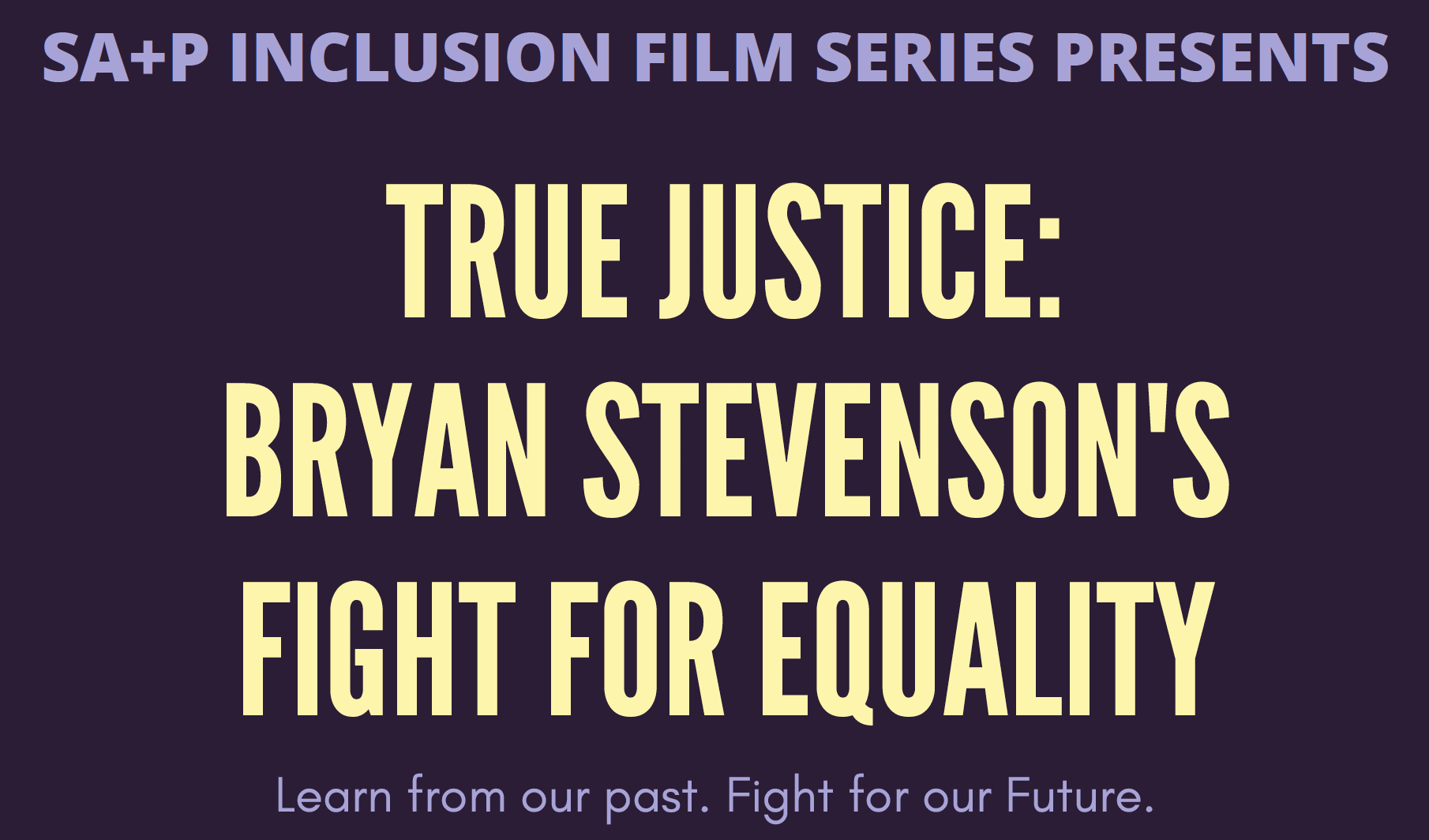 Sell tickets and manage registrations
Sell tickets and manage registrations
 View my tickets and registrations
View my tickets and registrations
 Sell more tickets through digital marketing
Sell more tickets through digital marketing
 Add an event calendar to your website
Add an event calendar to your website
 Find events by location and categories
Find events by location and categories
True Justice: Bryan Stevenson's Fight for Equality

Kindly join us for the screening and discussion of True Justice: Bryan Stevenson's Fight for Equality. The film follows the work of Bryan Stevenson, the author of the New York Times Bestseller Just Mercy, and the founder and executive director of the Equal Justice Initiative (EJI). Bryan and the EJI have fought for the equal rights of the poor, the marginalized, the incarcerated, and the condemned.
Following the screening, a discussion will be led by Justin Steil, PhD, Associate Professor or Law and Urban Planning, in the Department of Urban Studies and Planning, at the School of Architecture and Planning; and Mimi Wahid '21, a third-year undergraduate student, also in the Department of Urban Studies and Planning, at the School of Architecture and Planning.
Agenda:
4:30 PM to 5 PM (Pizza)
5 PM to 6:45 PM (Film Screening)
6:45 PM to 7:15 PM (Discussion)
About the Film
Told primarily in his own words, True Justice shares Bryan Stevenson’s experience with a criminal justice system that “treats you better if you’re rich and guilty than if you’re poor and innocent.” The burden of facing this system is explored in candid interviews with associates, close family members, and clients.
This feature documentary focuses on Bryan Stevenson’s life and career—particularly his indictment of the U.S. criminal justice system for its role in codifying modern systemic racism—and tracks the intertwined histories of slavery, lynching, segregation and mass incarceration. Highlighting watershed moments involving cases and clients, True Justice offers a rare glimpse into the human struggle that is required when the poor and people of color are wrongly condemned or unfairly sentenced, and explores the personal toll it takes.
The film chronicles [Equal Justice Initiative's (EJI's)], work in Alabama as well as the early influences that drove Bryan Stevenson to become an advocate for the poor and the incarcerated. As a young lawyer in the 1980s, he witnessed firsthand how courts unfairly applied the death penalty based on race and how the Supreme Court ultimately declared that racial bias in the administration of the death penalty was “inevitable.”
Tracing the trajectory of the Court since the 1857 Dred Scott decision, which ruled that African Americans are not citizens, True Justice shows how the Court has long sanctioned inequality, oppression, and violence. Illuminating the power of memory in cultural change, the film instills hope for a brighter American future.
The film also documents the monumental opening of EJI’s Legacy Museum and its National Memorial for Peace and Justice, which is dedicated to the more than 4,400 African American victims of lynching. These sites are part of EJI’s effort to engage the nation in a new era of truth and justice. As part of the campaign, EJI is working with communities to recognize lynching victims by collecting soil from lynching sites and erecting historical markers.
True Justice: Bryan Stevenson’s Fight for Equality reveals a history that can’t be forgotten in the pursuit of genuine justice.
Source: Equal Justice Initiative
*Content Warning. This documentary has scenes that some viewers may find disturbing or triggering. These include, but not limited to violence and lynching.*